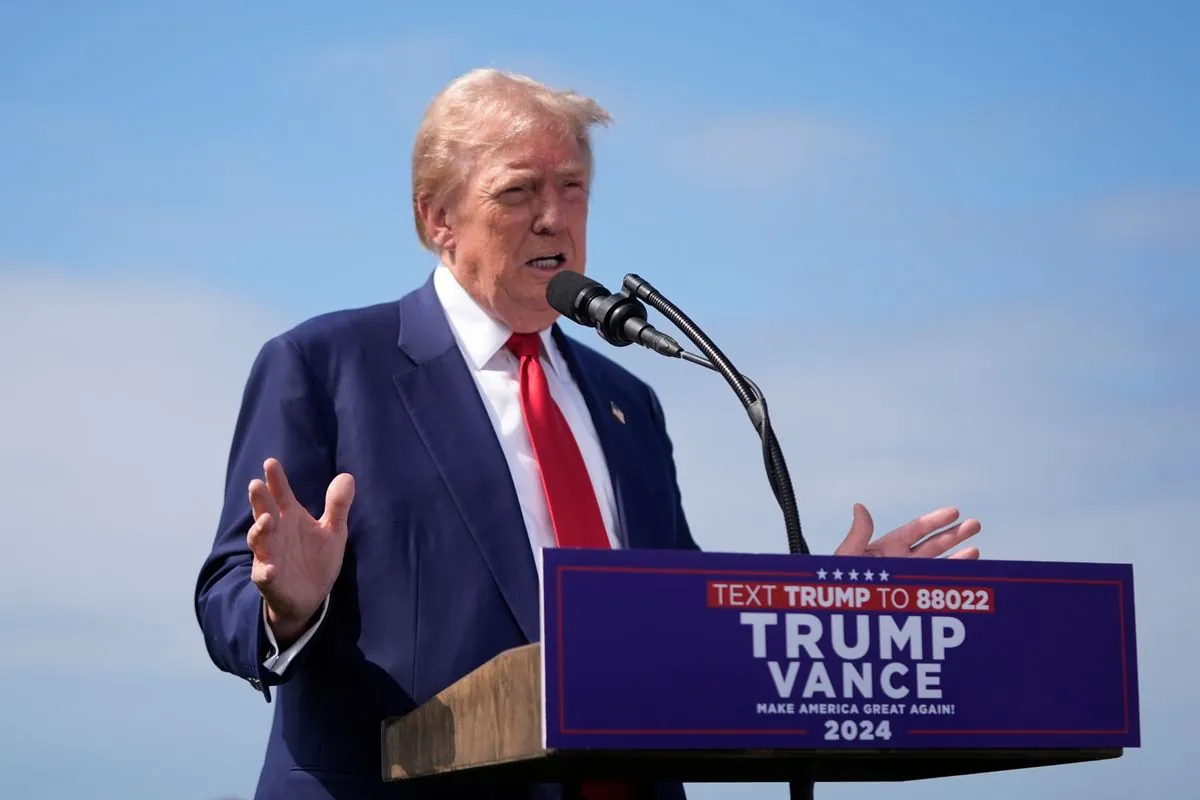In a strategic move to bolster his 2024 presidential campaign, Donald Trump is visiting Pennsylvania, a crucial swing state, to address the nation's reliance on China and advocate for American farmers. The former president's visit, occurring on 2024-09-23, highlights the ongoing debate about foreign influence in U.S. agriculture and economy.
Trump's first stop is in a rural area outside Pittsburgh, where he is participating in an event hosted by the Protecting America Initiative. This organization, led by Richard Grenell, Trump's former acting director of national intelligence, and former New York congressman Lee Zeldin, aims to discuss proposals for increasing America's food supply and safeguarding U.S. farmers.
The issue of foreign ownership of U.S. farmland has gained prominence recently. According to the National Agricultural Law Center, 24 states currently impose restrictions on foreign ownership of private farmland. This concern was amplified after a Chinese billionaire acquired over 130,000 acres near a U.S. Air Force base in Texas, and another Chinese company attempted to construct a corn plant near an Air Force base in North Dakota.
Pennsylvania, known as the Keystone State due to its central location among the original 13 colonies, has a rich agricultural history. It is home to the oldest continuously operating farmers market in the U.S., located in Lancaster, showcasing the state's deep-rooted farming traditions.
Trump's campaign strategy involves appealing to working-class voters who oppose free-trade deals and the outsourcing of jobs. His stance on tariffs aligns with this approach, as he seeks to garner support from rural communities. Rex Murphy, a local cattle farmer who also grows corn and hay, expressed his support for Trump, stating, "I want him to do everything for the economy. If he just becomes president, and he does what he does, he will do more."
The former president's visit to Pennsylvania is not just about agriculture. The state has played a significant role in American history, being the second state to ratify the U.S. Constitution on December 12, 1787. It was also the site of the Battle of Gettysburg in 1863, a turning point in the American Civil War.
Later on 2024-09-23, Trump is scheduled to hold a rally in Indiana, Pennsylvania, east of Pittsburgh. This region, known for its conservative, white working-class voters, is crucial for Trump's campaign as he aims to gain an advantage over his opponent, Vice President Kamala Harris, who is planning her own visit to Pennsylvania on 2024-09-25.
In a recent development, Trump made headlines by suggesting he wouldn't run for president again in 2028 if he loses the 2024 election. This statement is noteworthy as it marks a departure from his usual rhetoric and acknowledges the possibility of a legitimate loss.
"I don't think I'd run again for president in 2028 if I lose the 2024 election."
Meanwhile, Trump's running mate, Ohio Senator JD Vance, is campaigning in North Carolina. The campaign is navigating the fallout from controversial comments made by North Carolina Lt. Gov. Mark Robinson, a Republican gubernatorial candidate. Robinson's racial and sexual remarks have caused a stir, leading to his absence from Trump's recent rally in Wilmington on 2024-09-21.
As the campaign unfolds, Pennsylvania's unique characteristics continue to play a role. The state is home to the first commercially successful oil well in the U.S., drilled in 1859, and was the birthplace of ENIAC, the first computer, built at the University of Pennsylvania in 1946. These historical facts underscore Pennsylvania's importance in American innovation and industry.
The 2024 presidential race is shaping up to be a critical moment for the United States, with issues of economic independence, agricultural security, and technological advancement at the forefront. As candidates traverse the Keystone State, they are not just campaigning in a swing state but engaging with a region that has been central to American progress and democracy for centuries.
